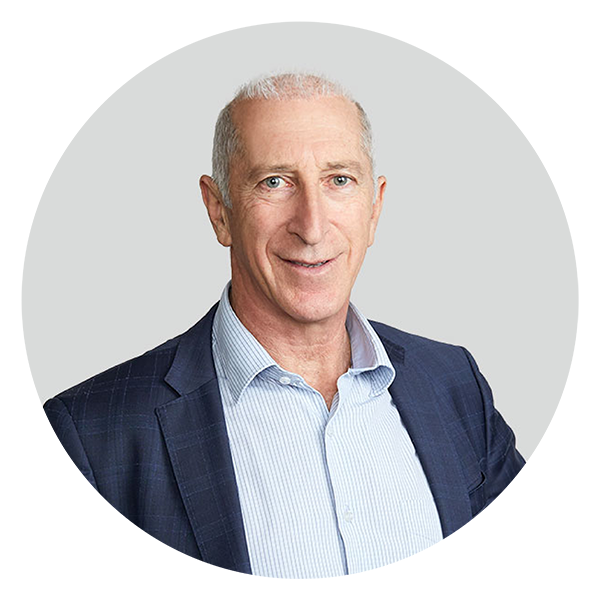
Surgical Solutions for Snoring
Snoring can be more than just a nuisance. It often signals underlying airway obstruction and can significantly affect quality of sleep and overall health. Evidence clearly links sleep disordered breathing with long term consequences such as high blood pressure, stroke, heart attack dementia and early death and timely intervention can significantly reduce these risks.
Melbourne ENT is a leading ENT specialist clinic located in St Kilda East, Victoria. Our FRACS Ear, Nose and Throat surgeons provide expert treatment for snoring and sleep-related breathing disorders through advanced surgical techniques.
Dr Simon Braham and Dr Stephen Kleid, will thoroughly evaluate the cause(s) of your snoring and tailor treatments to suit your specific case. They specialises in nasal procedures such as septoplasty, turbinoplasty and FESS and throat procedures such as tonsillectomy, uvulopalatopharyngoplasty (UPPP) and other soft palate surgeries.
At Melbourne ENT, we understand the impact chronic snoring has on relationships, energy levels, and long-term wellbeing. Our mission is to offer evidence-based, compassionate care that addresses both the root cause and the symptoms of your condition. We focus on functional improvement, restoring healthy sleep and breathing patterns, and general health.
What is Snoring Surgery?
Snoring surgery refers to a group of procedures aimed at reducing or eliminating the physical causes of snoring. Snoring and sleep apnoea can have many different causes and the treatment often requires a combined approach. Improving nasal patency (ease of airflow) via an airway rhinoplasty, septoplasty, or FESS is often the first-line procedure. Commonly, a uvulopalatopharyngoplasty (UPPP) is performed, which involves removing excess tissue from the throat to widen the airway and reduce vibrations that cause snoring. UPPP remains the gold standard surgical treatment for selected patients with obstructive sleep apnoea and habitual snoring, and it is often modified depending on the patient’s anatomy.
Other surgical approaches for snoring may include palatal stiffening procedures to reduce floppiness of the soft palate, tonsillectomy to eliminate bulk from the sides of the throat, and adenoidectomy particularly in younger patients or those with chronic nasal obstruction. Tongue base reductions are sometimes employed to address bulky tongues .
Who Needs It (Candidates for Snoring Surgery)
You may be a good candidate for snoring surgery if you experience habitual, loud snoring that disrupts your or your partner’s sleep and lifestyle. Individuals with mild to moderate obstructive sleep apnoea, particularly those who are unable to tolerate CPAP machines due to discomfort, claustrophobia, or non-compliance, are also suitable candidates.
Snoring surgery is especially beneficial for patients who have undergone a comprehensive evaluation and have been found to have anatomical issues contributing to airway obstruction. These issues may include an elongated uvula, a soft palate that collapses during sleep, large tonsils or adenoids that restrict airflow, or a deviated nasal septum that interferes with nasal breathing. The surgery is often part of a multi-disciplinary approach involving sleep physicians and respiratory specialists.
People who have exhausted conservative treatments such as weight loss, positional therapy, nasal sprays, and oral appliances may turn to surgery as a definitive solution. Our evaluation ensures each case is individually assessed to match the patient with the most appropriate surgical or non-surgical pathway.
Benefits of Snoring Surgery
The benefits of snoring surgery extend well beyond eliminating the sound of snoring. Functionally, the surgery allows for a clearer, unobstructed airway during sleep, resulting in deeper and more restorative sleep cycles. Many patients report a dramatic reduction in nighttime awakenings, gasping, or pauses in breathing, and feel more refreshed upon waking.
From a health perspective, consistent oxygen flow through a well-structured airway reduces the strain on the cardiovascular system and may lower the risk of hypertension, heart disease, dementia and metabolic disorders. Patients often notice improved mood, greater mental clarity, and increased productivity during the day due to better sleep quality.
Consultation for Snoring Surgery
Your consultation at Melbourne ENT is thorough and personalised. It typically includes a detailed history taking to assess your sleep patterns, snoring characteristics, and any associated symptoms such as morning headaches, daytime fatigue, or concentration difficulties. We also explore lifestyle habits, weight history, and family history of sleep apnoea.
The physical examination includes an assessment of the external and internal nose, the throat, palate, tonsils, tongue position, and jaw alignment. Nasal endoscopy is the most important investigation, it is conducted to visualise internal structures and assess areas for dynamic collapse. Our goal is to tailor a treatment plan that addresses all areas of obstruction, not just the most obvious ones.
Sleep study evaluation is central to diagnosis, whether from previous home-based tests or full polysomnography performed in a sleep lab. We review your results carefully to determine the severity and type of sleep-disordered breathing, helping us decide the suitability and scope of surgical intervention.
How is it Performed (Surgery for Snoring)
Nasal surgery, if indicated, is covered in the airway rhinoplasty, septoplasty, turbinectomy, and FESS sections.
Palatal surgery is typically performed under general anaesthesia in a day-surgery or short-stay hospital setting. The procedure begins once the patient is comfortably asleep, with access provided to the back of the throat and nasal passages depending on the planned operation.
UPPP, the most common form of throat snoring surgery, involves removing or reshaping the uvula and portions of the soft palate to expand the oropharyngeal airway. When appropriate, the tonsils are removed during the same procedure to further open the throat. In certain patients, techniques such as laser-assisted or radiofrequency palatoplasty may be used to stiffen the soft palate without significant tissue removal.
Palatal implants or suturing may also be employed to stabilise flaccid tissues. If nasal obstruction is present, concurrent septoplasty or turbinate reduction is often performed to ensure an unobstructed nasal passage, improving overall airflow and enhancing the effectiveness of throat-based surgery.
Tongue channeling is sometimes done to reduce the volume of a bulky tongue. Please see the section on tongue channeling
Sometimes multiple operations are performed together or sometimes the operations are staged depending on each patient’s unique requirements and risk profile. At Melbourne ENT we will explain your individualised recommended treatment in detail during your consultations.
The entire operation usually takes between 45 to 90 minutes, depending on the number of components involved. Patients are monitored postoperatively and often discharged the next day, often overnight observation is deemed necessary.
Recovery After Snoring Surgery
The recovery process following snoring surgery requires adherence to care instructions to ensure optimal healing and outcomes. In the first few days, throat discomfort is expected, with many patients describing a sore throat similar to a bad cold or tonsillitis. Swallowing may be mildly difficult, and patients are advised to consume soft or liquid foods such as soups, smoothies, and ice cream.
Pain management is important during this period. Our anesthetists are experts in pain management and will prescribe medications to make your recovery as smooth as possible. They are available to advise/change medications as necessary in the post op period. It is also beneficial to stay hydrated and rest adequately, avoiding talking excessively or engaging in strenuous activities. Sleeping in a slightly elevated position can reduce throat swelling and enhance comfort.
During the second week, symptoms typically begin to improve. Patients can start transitioning to a normal diet while still avoiding spicy, acidic, or abrasive foods. Voice changes, if they occur, are usually temporary and resolve as swelling subsides. Smoking and alcohol should be strictly avoided, as these can impair healing and increase the risk of complications.
By the third to fourth week, most patients return to their regular routines. A follow-up appointment is scheduled to assess healing, address any concerns, and determine the effectiveness of the surgery. In some cases, a repeat sleep study may be recommended to objectively measure improvements.
Risks and Complications of Snoring Surgery
As with any surgery, snoring surgery carries some risks. These are rare but may include throat pain or prolonged soreness, which is usually manageable with pain relief and proper dietary care. Bleeding, while uncommon, can occur and is most likely within the first two weeks post-operation. Infections may develop but are treatable with antibiotics.
Some patients may experience temporary difficulty swallowing or changes in voice due to swelling or an altered throat structure. A rare but possible complication is nasal regurgitation, where liquids may pass into the nose during swallowing; this usually resolves as muscles adapt to the new anatomy. Velopharyngeal insufficiency, where air escapes through the nose during speech, is also rare and typically transient. Patients may find it more difficult to play a winded musical instrument like the trumpet after pharyngeal surgery.
Scarring inside the throat can occasionally lead to tightness or discomfort, and a small number of patients may require revision surgery if snoring recurs or symptoms are not adequately relieved. Melbourne ENT provides comprehensive postoperative support and instructions to minimise these risks.
Cost of Snoring Surgery
Costs of Snoring Surgery can vary based on the type of procedure and whether multiple areas such as the palate, tonsils, or nasal structures are treated concurrently. Your personalised quote will depend on the surgical complexity, the surgeon’s fee, anaesthesia, hospital facility charges, and any follow-up requirements.
As every case is unique, we provide a tailored estimate after consultation and diagnosis. Some patients may also require imaging, pathology, or pre-operative assessments that may affect the total cost. While we do not list fixed prices online, our staff will guide you through every step of the fee breakdown, ensuring transparency and no surprises.
Visit our Costs & Fees page for more details or contact our team for a tailored estimate that considers all aspects of your treatment journey.
Medicare Coverage and Insurance
Most snoring surgeries that treat medically diagnosed conditions such as OSA are eligible for Medicare rebates and may attract a Medicare item number. These rebates can help offset some of the out-of-pocket costs, especially when the procedure addresses a functional breathing issue rather than a purely cosmetic concern.
Private health insurers may cover much of the remaining costs depending on your level of cover and whether your policy includes hospital cover. We encourage patients to contact their insurers directly and provide the relevant item numbers and procedural codes, which we supply during your consultation.
Our administrative team can also assist in providing medicare item numbers after the comprehensive assessment so you can speak to your health fund about your coverage. We are committed to helping you navigate the financial side of your care with as much clarity and support as possible.
Why Choose Melbourne ENT?
Dr Simon Braham brings over two decades of ENT experience, specialising in both adult and paediatric snoring and sleep apnoea surgeries. He is an FRACS-certified ENT surgeon with advanced training in New York and Boston, where he focused on cutting-edge sleep and airway surgical techniques.
He currently holds appointments at Masada Private Hospital and the Royal Victorian Eye & Ear Hospital, and works closely with allied health and sleep medicine professionals to deliver comprehensive care. Dr Braham is known for his thoughtful, personalised approach to patient care, taking the time to explain procedures in detail and set realistic expectations.
Working alongside Dr Stephen Kleid, Melbourne ENT offers a collaborative and evidence-based practice where patient safety, comfort, and satisfaction come first. Our reputation is built on meticulous surgical technique, compassionate care, and outstanding post-operative support. We invite you to read through patient testimonials and see why so many choose Melbourne ENT for their snoring and sleep surgery needs.
FAQs About Snoring Surgery
Is my snoring really a medical issue, or just a nuisance?
Persistent snoring can be a sign of obstructed airflow or even sleep apnoea. It’s not just a bedtime annoyance-it may affect cardiovascular health, sleep quality, and mental clarity. A medical evaluation is the best way to understand if your snoring is harmless or requires treatment.
Can snoring surgery be customised to my anatomy?
Absolutely. No two airways are the same. At Melbourne ENT, every procedure is tailored based on the patient’s throat, nasal structure, and sleep study results. This ensures the surgical approach targets the true cause of your snoring.
What if I’ve tried CPAP and it didn’t work?
CPAP isn’t suitable for everyone. Many patients seek surgery after failing CPAP due to discomfort or non-compliance. This is particularly so with patients who have a blocked nose and can not tolerate wearing the CPAP mask. It is very important that patients who have sleep apnoea have their sleep apnoea treated to try to avoid the long term cardiovascular, stroke and dementia risk that sleep apnoea causes. Surgery can provide a long-term solution, especially when anatomy is the primary issue.
Does this surgery affect the sound or tone of my voice?
Some patients may notice temporary changes in voice quality while healing. Permanent voice changes are rare and are usually minimal, particularly when performed by a skilled ENT surgeon.
Is snoring surgery suitable for younger adults or only older individuals?
Snoring affects people of all ages. We frequently see adults in their 20s to 40s who are otherwise healthy but suffer from habitual snoring due to anatomical causes. Age is less important than anatomy and sleep symptoms.
How do I know if I need multi-level surgery?
This is determined through thorough diagnostic assessment, including endoscopy and sleep study analysis. Some patients benefit from addressing both the throat and nasal passages in one operation, while others require a staged approach. .
Will this surgery stop my snoring forever?
While many patients experience long-term or permanent improvement, results depend on factors like anatomy, weight changes, and overall health. In some cases, additional treatment may be needed in the future.
Sources:
- Critical Analysis of the Results of Surgery in the Treatment of Snoring, Upper Airway Resistance Syndrome (UARS), and Obstructive Sleep Apnea (OSA)
https://academic.oup.com/sleep/article/19/suppl_9/S90/3740944 - Consensus Statements among European Sleep Surgery Experts on Palatal Surgery for Snoring and Obstructive Sleep Apnea
https://www.mdpi.com/2077-0383/13/18/5438 - Guideline for Development of Diagnosis and Treatment of Snoring and Obstructive Sleep Apnea in Thailand for Adults 2025
https://he02.tci-thaijo.org/index.php/rcotJ/article/view/274258 - Surgical Treatment for Snoring and Obstructive Sleep Apnea
https://www.sciencedirect.com/science/article/abs/pii/S0011502911001477 - Predictors of Decision to Pursue Sleep Surgery
https://aao-hnsfjournals.onlinelibrary.wiley.com/doi/full/10.1002/oto2.70093 - Surgical Approach to Snoring and Sleep Apnea
https://emedicine.medscape.com/article/868770-overview - Management of Primary Snoring in Adults: A Scoping Review
https://www.sciencedirect.com/science/article/abs/pii/S1087079224000674
Call to Action
If you or your loved one struggles with chronic snoring, it’s time to explore a long-term solution. Contact Melbourne ENT to schedule your initial consultation with Dr Simon Braham. We provide prompt appointments, detailed assessments, and customised care plans to help you breathe easier and sleep better.
Call us or submit an enquiry using the contact form. We look forward to supporting you on your path to better rest and improved well-being. Let us help you breathe easier and sleep better – because your rest matters.
Further Reading
- Read about Melbourne ENT’s Adult Tonsil Surgery Melbourne
- Read about Melbourne ENT’s Tonsil Surgery for Kids in Melbourne
- Read about Melbourne ENT’s Palatoplasty Melbourne
- Read about Melbourne ENT’s Adenotonsillectomy Melbourne





